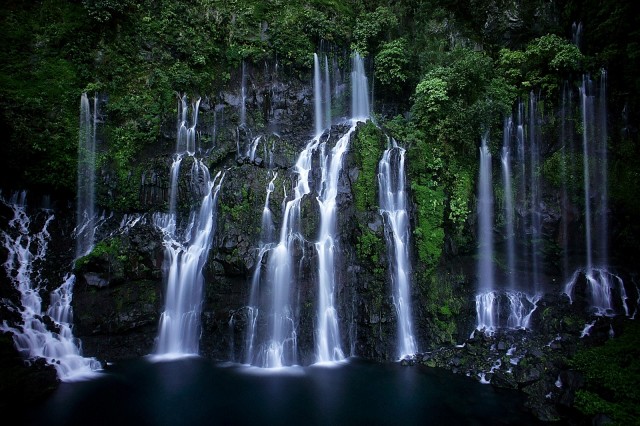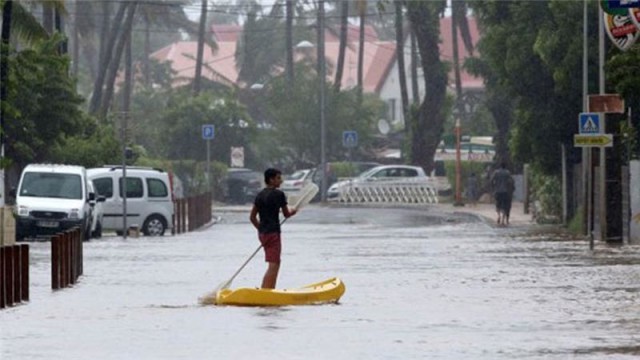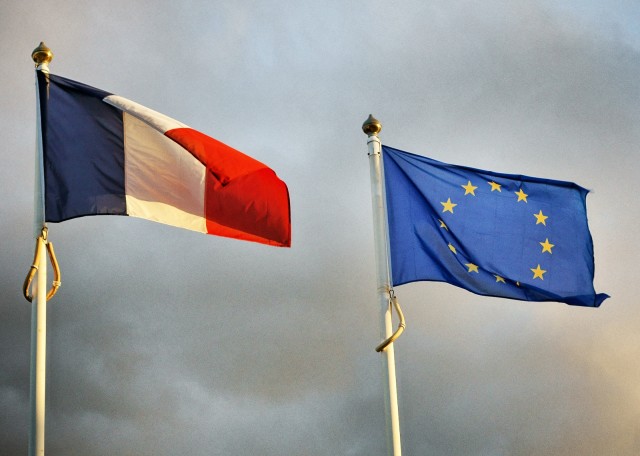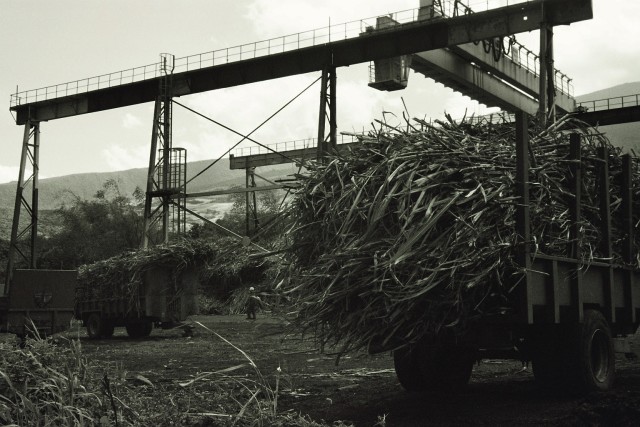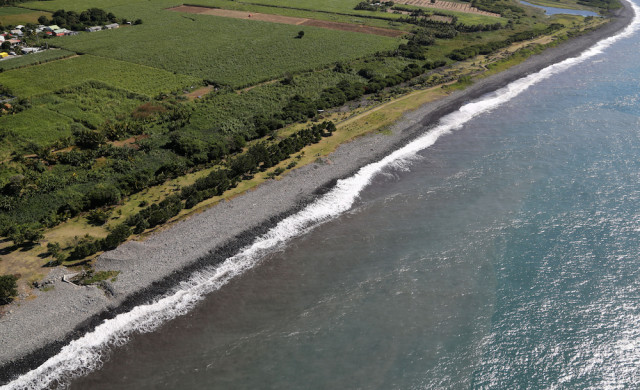We can admit it: We’d never heard of the island where a piece of an airline wing that could likely be that of the missing Malaysia Airlines flight 370 was found on Thursday — roughly 3,500 nautical miles away from MH370’s last contact. Here’s what we learned about Reunion Island.
The island is home to one of the world’s most active volcanoes, Piton de la Fournaise. It just erupted Friday morning.
Text from video, below, translated from French: Thursday night around 10:40 p.m. Piton de la Fournaise erupted for the third time this year. An eruption within days of year-end celebrations that will delight more than one, if maintained. The long eruptive fissure, about 500 meters, is located on the west side of the volcano, just above the Chapel Rosemont, exactly opposite the Pas de Bellecombe, accessible to as many people without any effort. The enclosure is obviously closed, new flows have covered large portions of the trail to the summit. Here are the pictures of the eruption taken early Friday.
La Reunion National Park covers about 40 percent of the island, and was added to the World Heritage list by UNESCO in 2010.
“Dominated by two volcanic peaks, the site has a great diversity of escarpments, forested gorges and basins that together create a spectacular landscape,” UNESCO wrote. “It serves as a natural habitat for a great diversity of plants with a high degree of endemism. There are subtropical rainforests, the foggy moors and forests, forming a remarkable mosaic of ecosystems and landscape features.”
Greatest 12-hour rainfall (Jan. 7-8, 1966): 45 inches
Greatest 24-hour rainfall (Jan. 7-8, 1966): 71.8 inches
Greatest 72-hour rainfall (Feb. 24-26, 2007): 154.72 inches
Greatest 96-hour rainfall (Feb. 24-26, 2007): 194.33 inches (That’s over 16 feet / 4.9 meters of rain!)
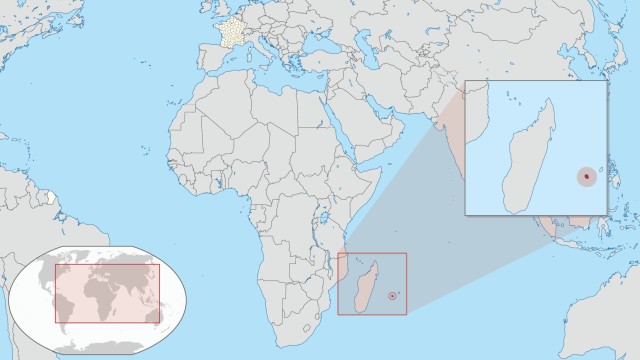
Just over half the size of Rhode Island, Reunion Island covers 970 square miles. 841,000 people live there, roughly 500 miles off the east coast of Madagascar and 100 miles southwest of Mauritius.
France is broken into 27 regions, like Alsace and Burgundy. Five are overseas: French Guiana in South America, Guadeloupe and Martinique in the Caribbean, Mayotte off of southeast Africa, and Reunion. Since it’s a part of France, it’s an outmost region of the EU and is also a part of the eurozone — it’s pictured on the lower left of the back of the note. The official language is French, and most also speak Reunion Creole.
It was colonized by France in the 17th century, when 20 settlers were sent there in 1665. Before that, it was the prison for a dozen French mutineers who were sent from Madagascar. Africans, Chinese, Europeans, and Indians were later brought in as workers. It was a colony until 1946, when it was made an official part of France.
Next to tourism and other services, the sugar industry is one of the biggest pieces of Reunion Island’s economy. It’s responsible for 18,000 jobs according to Le Monde.
The GDP per capita was $26,369 in 2013, according to Eurostat. If Reunion Island were it’s own country, it would rank No. 35 in the world — between Cyprus ($27,910) and South Korea ($25,997). But there’s also a large wealth gap — at least 40 percent of the workforce is unemployed.
A selection of photographs by flickr member Miwok that really, really make us want to visit Reunion Island. See the full photostream here.
[flagallery gid=158]
 CGTN America
CGTN America
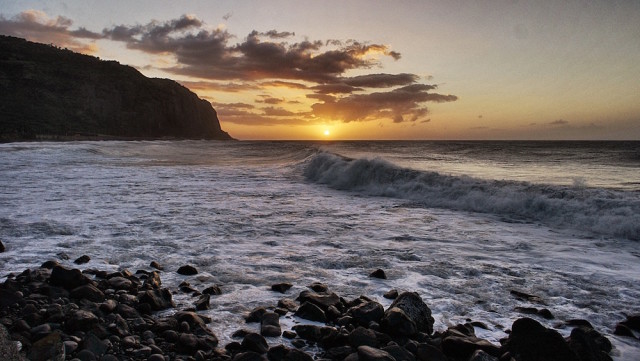 (Miwok / flickr)
(Miwok / flickr)
